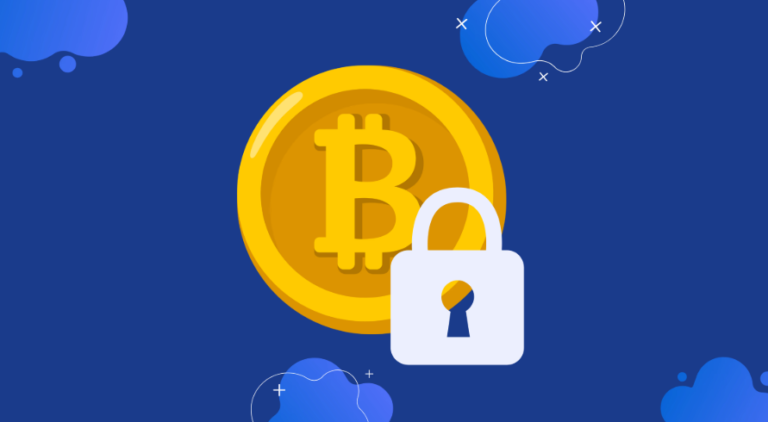How Blockchain Technology is Changing the Future of Finance
In recent years, blockchain technology has emerged as a transformative force across multiple industries, with finance standing out as one of the most profoundly affected sectors. This revolutionary technology is reshaping the way financial transactions are conducted, improving transparency, security, and efficiency. In this article, we explore how blockchain technology is changing the future of finance, highlighting its core benefits, applications, and the challenges that lie ahead.
Introduction to Blockchain in Finance
What is Blockchain Technology?
Blockchain is a decentralized digital ledger that records transactions across many computers so that the records cannot be altered retroactively without the alteration of all subsequent blocks and consensus of the network. This technology enables secure, transparent, and immutable data storage, making it especially suited for financial services.
Brief History of Blockchain and Finance
Originally conceptualized in 2008 with the creation of Bitcoin, blockchain’s potential soon extended beyond cryptocurrency. Financial institutions began exploring its uses for enhancing transaction speed, security, and transparency, ushering in a new era for financial innovation.
Why Blockchain Matters in Finance
Traditional financial systems often face challenges like slow processing times, high fees, and vulnerability to fraud. Blockchain addresses these pain points by providing a trusted environment where transactions are faster, cheaper, and more secure, paving the way for a more inclusive financial future.
See also: Top 10 Cryptocurrency Trends to Watch in 2025
Fundamentals of Blockchain Technology
Decentralization and Distributed Ledger
Unlike traditional centralized databases managed by banks or authorities, blockchain operates on a decentralized network of nodes, where every participant holds a copy of the ledger. This decentralization reduces the risk of a single point of failure and increases transparency.
Cryptography and Security Features
Blockchain relies on advanced cryptographic techniques to secure data, ensuring only authorized users can access or validate transactions. This cryptography underpins trust and protects against hacking or data manipulation.
Smart Contracts and Automation
Smart contracts are self-executing contracts with terms directly written into code. They automate complex financial processes such as loan approvals and payments, reducing human error and enhancing efficiency.
Current Financial Systems: Challenges and Limitations
Centralization Risks and Trust Issues
Traditional banking systems rely heavily on centralized authorities, which can lead to vulnerabilities such as fraud, censorship, or operational downtime. Customers must place trust in intermediaries that may not always act transparently.
Slow Transaction Speeds and High Costs
Cross-border payments can take days to settle and incur significant fees due to multiple intermediaries. This inefficiency stifles commerce and financial inclusion.
Lack of Transparency and Fraud
Opaque processes in current systems sometimes hide fraudulent activities or mistakes, making it difficult to audit or trace financial flows effectively.
Blockchain’s Impact on Payments and Transactions
Faster Cross-Border Payments
Blockchain enables near-instantaneous transfers worldwide, bypassing traditional intermediaries and significantly reducing settlement times.
Reduced Transaction Fees
By eliminating middlemen, blockchain lowers transaction costs, benefiting both businesses and consumers, especially in micropayments and international remittances.
Enhanced Security in Transactions
Every transaction is encrypted, time-stamped, and linked to the previous one, creating an immutable chain that is nearly impossible to alter.
Decentralized Finance (DeFi): A Game-Changer
What is DeFi?
DeFi leverages blockchain to create financial services—like lending, borrowing, and trading—without traditional intermediaries. This democratizes access to financial products.
Lending, Borrowing, and Yield Farming
Users can lend their crypto assets and earn interest or borrow against them without banks, offering new revenue streams and financial flexibility.
Risks and Rewards of DeFi
While DeFi opens opportunities, it also carries risks such as smart contract bugs, market volatility, and regulatory uncertainties.
Tokenization of Assets and Securities
What is Tokenization?
Tokenization converts real-world assets such as stocks, real estate, or commodities into digital tokens on a blockchain, allowing for fractional ownership and easy transfer.
Impact on Stocks, Real Estate, and Commodities
Tokenization improves liquidity and accessibility, enabling investors to diversify portfolios with smaller amounts and increasing market participation.
Improved Liquidity and Accessibility
Tokenized assets can be traded 24/7 on blockchain platforms, removing traditional barriers and delays.
Blockchain in Banking and Financial Institutions
Streamlining KYC and AML Processes
Blockchain can store verified identity data securely, simplifying Know Your Customer (KYC) and Anti-Money Laundering (AML) checks, reducing onboarding times.
Fraud Prevention and Enhanced Compliance
Transparent and immutable records help banks detect fraud early and maintain regulatory compliance more effectively.
Cross-Industry Collaborations
Financial institutions increasingly collaborate on blockchain consortia, sharing data to create more efficient and resilient networks.
Blockchain’s Role in Digital Identity Verification
Secure Digital Identities
Blockchain provides tamper-proof digital identities that individuals fully control, enhancing privacy and security.
Enhancing Customer Experience
Faster identity verification reduces friction in financial services, improving user satisfaction.
Reducing Identity Theft
Decentralized IDs reduce the risk of centralized data breaches and identity theft.
Smart Contracts and Automated Finance
How Smart Contracts Work
Smart contracts automatically execute transactions when pre-set conditions are met, eliminating intermediaries.
Benefits in Insurance, Loans, and Trade Finance
Automation speeds claims processing, loan disbursements, and international trade settlements, reducing costs and errors.
Real-World Use Cases
From instant insurance payouts to supply chain finance, smart contracts are transforming how contracts are executed.
Challenges and Risks of Blockchain in Finance
Regulatory Uncertainty
Governments are still developing frameworks for blockchain, which can slow adoption due to legal ambiguities.
Scalability and Energy Consumption
Some blockchains face challenges handling large transaction volumes and use significant energy, raising sustainability concerns.
Security Vulnerabilities and Fraud Risks
Although secure, blockchain systems can be targets of sophisticated attacks or suffer from poorly coded smart contracts.
Future Trends: What to Expect in Blockchain Finance
Integration with AI and IoT
Combining blockchain with AI and Internet of Things (IoT) will enable smarter, more autonomous financial systems.
Central Bank Digital Currencies (CBDCs)
Governments are exploring blockchain-based digital currencies, which could redefine monetary policy and payments.
Mass Adoption and Global Financial Inclusion
Blockchain promises to bring financial services to the unbanked, fostering global economic growth and equality.
Conclusion: The Road Ahead for Blockchain and Finance
Blockchain technology is revolutionizing finance by making it more secure, transparent, and efficient. While challenges remain, its integration across banking, payments, asset management, and decentralized finance signals a transformative future. Stakeholders—from regulators to businesses—must collaborate to harness blockchain’s full potential, ensuring it shapes a more inclusive and innovative financial world.
Frequently Asked Questions (FAQs)
Q1: What makes blockchain secure for financial use?
Blockchain uses cryptographic algorithms and decentralized networks, making it tamper-proof and resistant to hacking.
Q2: How does blockchain reduce transaction costs?
By removing intermediaries and automating processes, blockchain minimizes fees associated with traditional banking.
Q3: What are smart contracts and how do they work?
Smart contracts are self-executing contracts with coded rules that automatically enforce terms when conditions are met.
Q4: Can blockchain eliminate fraud in finance?
While it significantly reduces fraud by increasing transparency and traceability, it cannot eliminate all risks entirely.
Q5: What is DeFi and why is it important?
DeFi is decentralized finance that offers banking services without intermediaries, making finance accessible to more people globally.
Q6: How will blockchain affect traditional banks?
Blockchain will push banks to innovate, improving efficiency and security, while some traditional roles may become obsolete or evolve.



